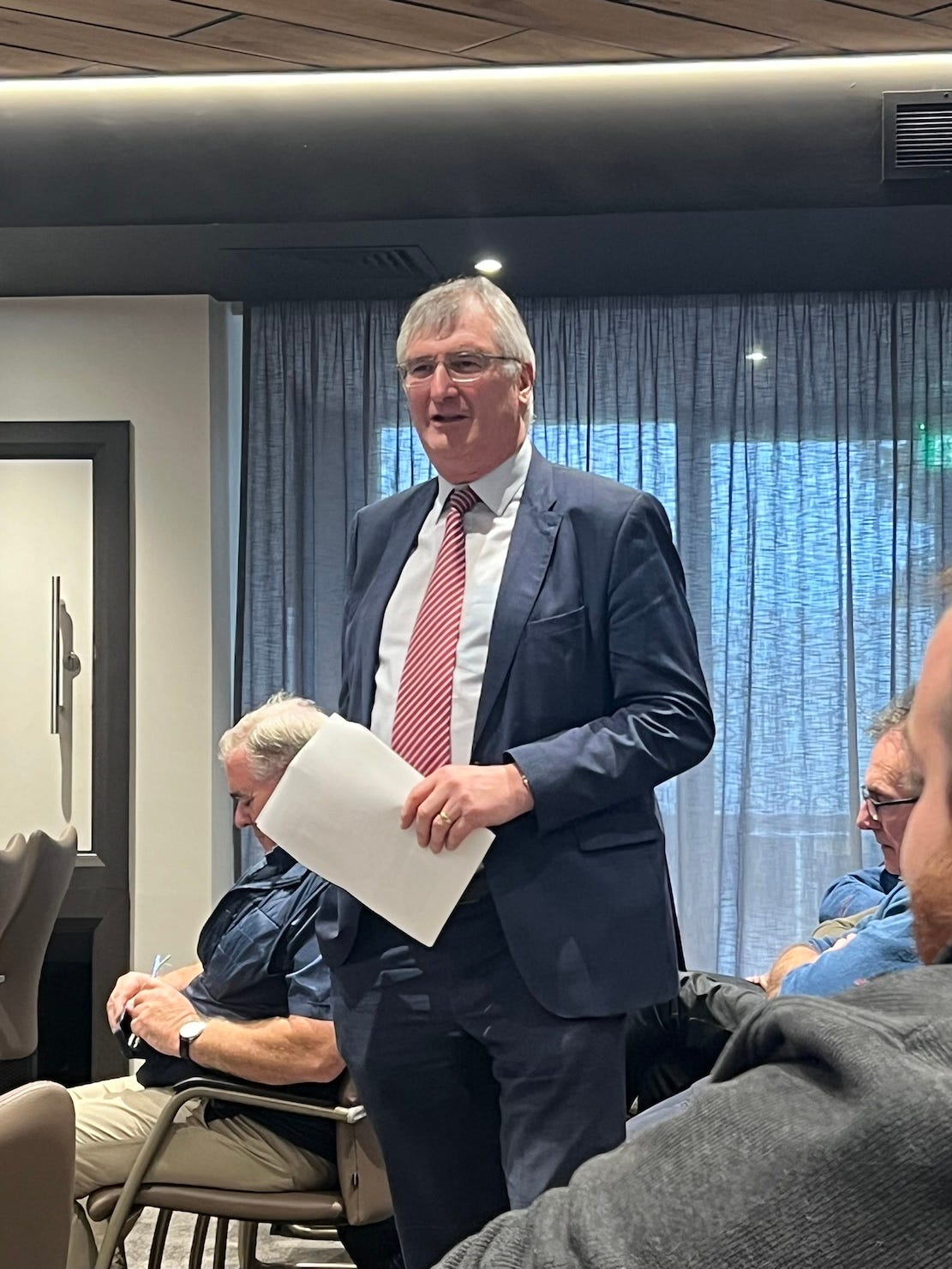North of Ireland Veterinary Association hosts key TB meeting
Expert speakers to address endemic diseases of livestock
The North of Ireland Veterinary Association (NIVA) recently hosted a key meeting bringing together several expert speakers to address the topic of ‘Reducing the consequences of endemic diseases of livestock’ with a focus on bovine TB. Over 90 delegates registered for the event, demonstrating the interest in approaching the topic from new directions.
NIVA recognises that bovine TB is having a devastating impact in NI, on farmers and farming families, both mentally and financially, on vets and other stakeholders through the food chain, on livestock health and welfare, on wildlife, on the environment, and on society given that animal health is recognised as a ‘public good’.
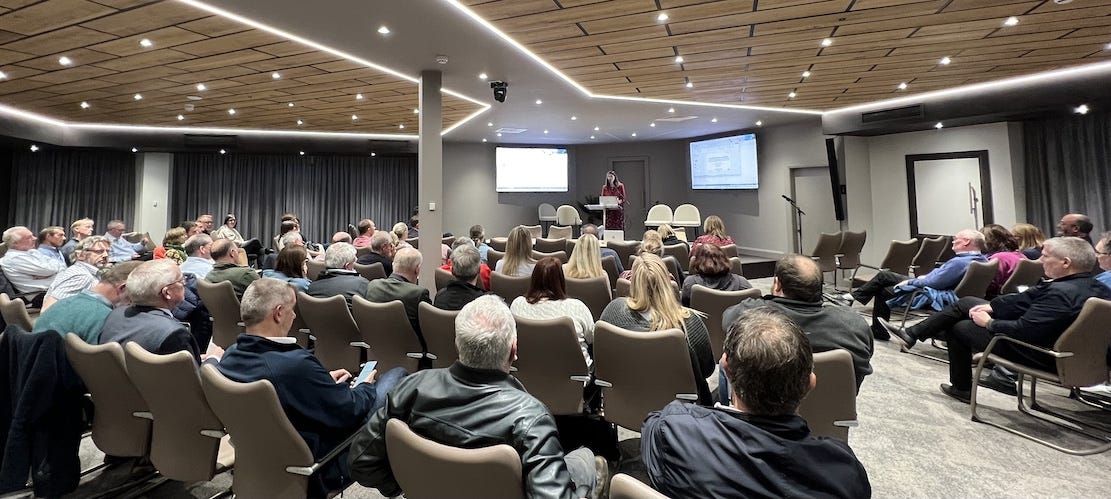
Hello and welcome to Horse&Field. Our aim is to support local, grass roots equestrian enthusiasts and competitors and keep you all informed of what’s happening in the horsey world, as well as covering all things agricultural. If you haven’t already subscribed you can do so below:
Despite much work having been done locally by vets and scientists to investigate actions that would reduce the disease incidence, effective steps have yet to be taken to address the infection in a way that is appropriate to our local situation. As bovine TB (bTB) is a complex multifactorial disease, NIVA believes that a holistic approach, including wildlife intervention, must be taken to tackle the problem, and that collaborative working between farmers, vets and government is vital.
The purpose of this event was to provide a unique forum to pull together vets working in all sectors of the profession in NI and other stakeholders, to discuss and debate the true impact of the disease and to learn about the latest social dimensions of bTB control.
At the meeting, Professor Jonathan Rushton (University of Liverpool) set the scene by discussing the governance of control programmes, proper costing of the impacts from the economic and animal health perspectives and market incentives for freedom of disease. He also outlined the Global Burden of Animal Diseases project.
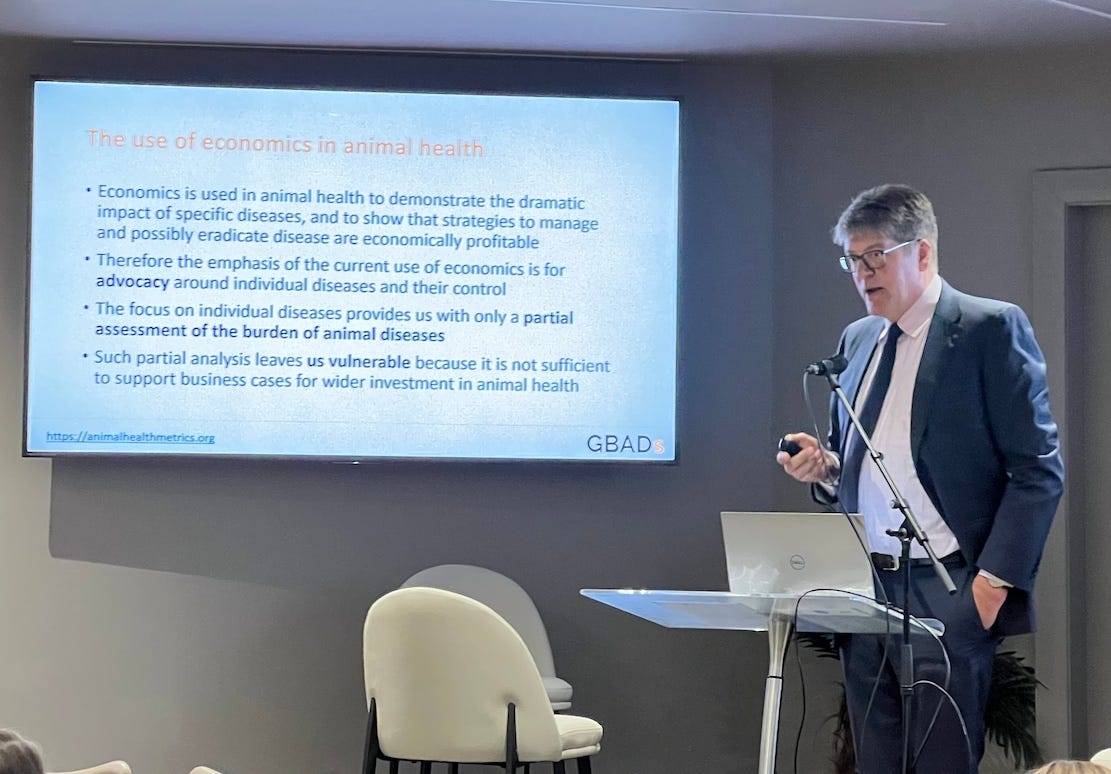
Professor Philip Robinson (Harper and Keele Vet School), who has previously researched factors affecting bTB eradication in NI, discussed why behavioural science should be central to the control and eradication of bTB and referenced the question of programme governance.
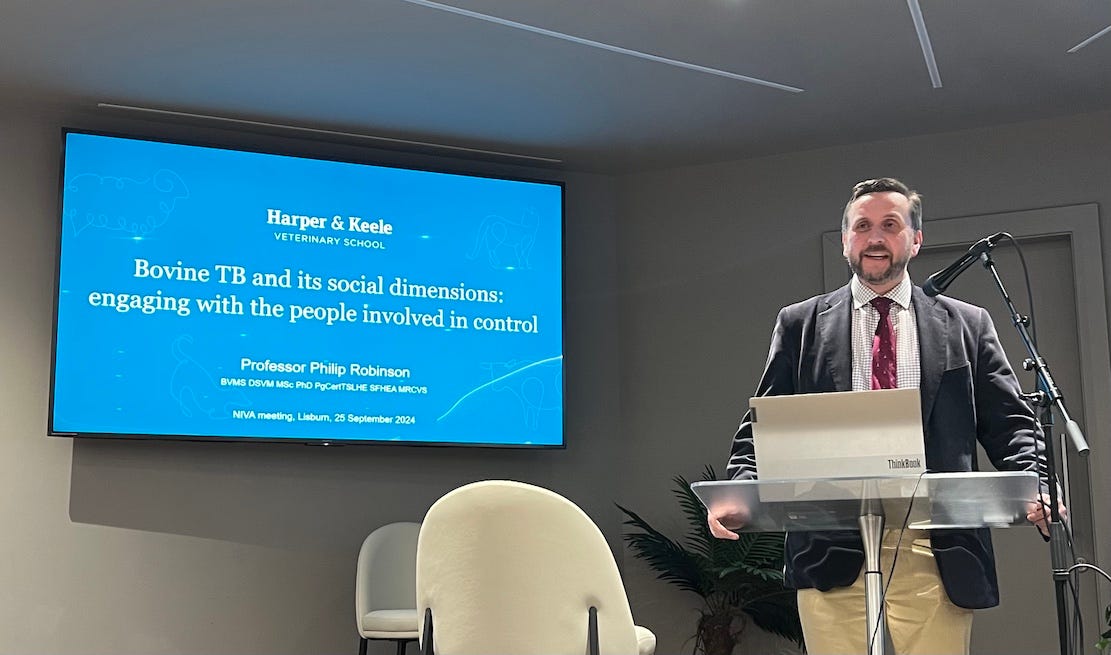
Dr Brendan Griffin (a large animal practitioner in Pembrokeshire) discussed a pilot bTB control project in Wales in a double bill focussing on vet-farmer collaboration with Roger Lewis, Chair of the NFU Cymru TB Focus Group and a Pembrokeshire dairy farmer.
Dr Sam Strain presented key questions for consideration, including on responsibility sharing, where efforts should be placed in disease control efforts, the need for an infection model and the potential offered by strategic use of available data.
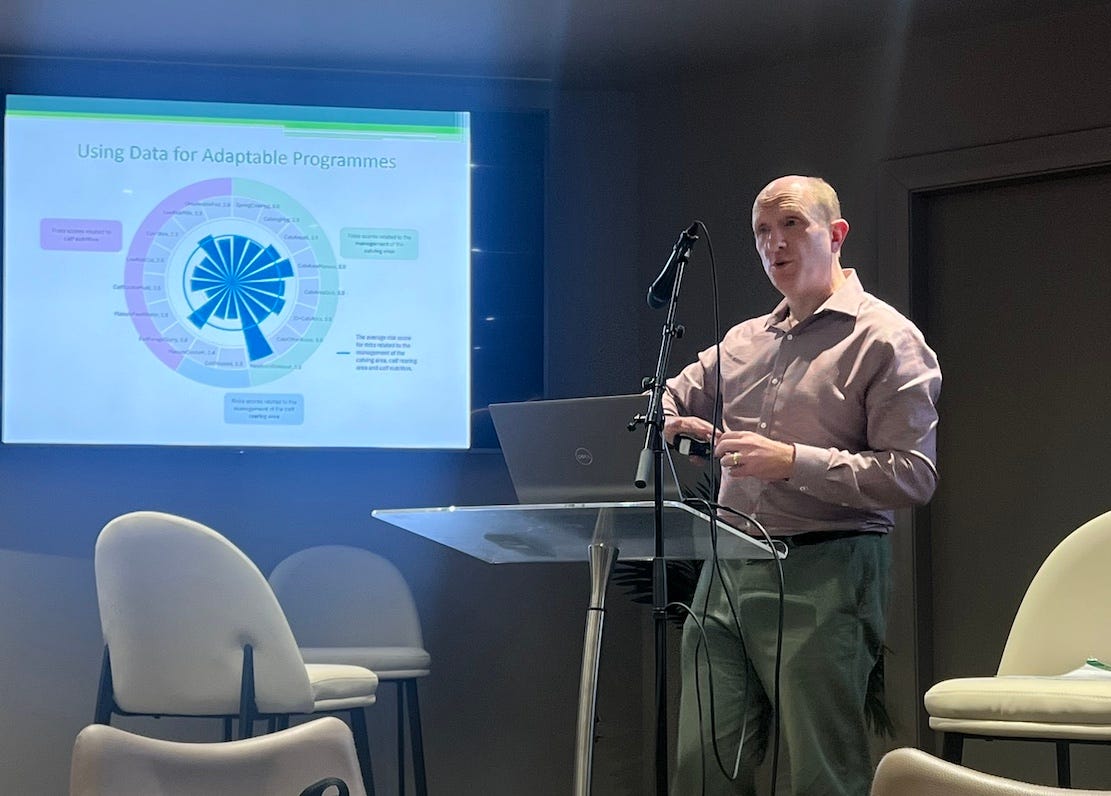
The evening was rounded off with a highly engaging panel discussion chaired by agricultural journalist Richard Halleron, with constructive audience engagement.
President Sharon Verner said: “This event was a timely and one-off opportunity for vets and other guests to demonstrate their willingness to engage on a difficult and sensitive infectious disease topic. We set out to explore how we can put our local situation into a wider context, how we can encourage decision makers to make evidence-based policies, and how each of us can make a difference when working with individuals on the ground.
“NIVA believes that in NI, there needs to be a drive to control bTB in a strategic and scientific manner, and that such an approach will be the most effective way to reduce the costs of the TB Programme. There is an opportunity in NI to use our strengths collectively to manage bTB, however this needs to be underpinned by government support financially.”
The meeting was sponsored by ASDA and NIVA was delighted to use the T3 Conference Centre at House of Vic-ryn, Lisburn. All of the venue hire costs are going to Daisy Lodge at Newcastle, a therapeutic centre for families facing cancer, thanks to the generosity of the businesses, who support the T3 centre.





